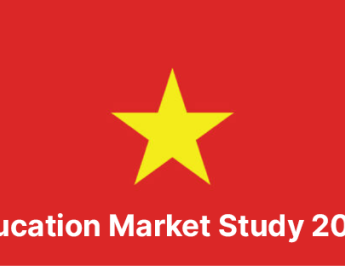
The purpose of this study is to understand parents and students’ aspiration, their educational journey.
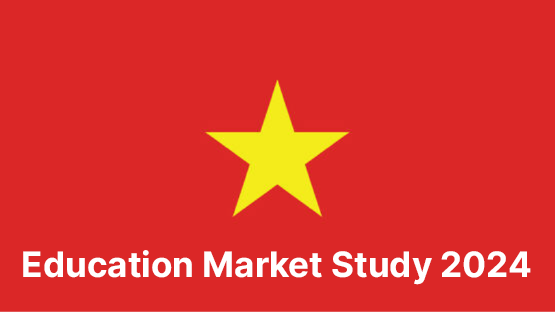
The purpose of this study is to understand parents and students’ aspiration, their educational journey from the start of K12 education to the higher education, and their perception about international/ transnational programmes. The survey is conducted using an online questionnaire, scripted and managed by Decision Lab’s surveying and data management platform.
Vietnamese parents exhibit a well-defined, long-term vision for their child’s educational journey, often planning one or two stages ahead.
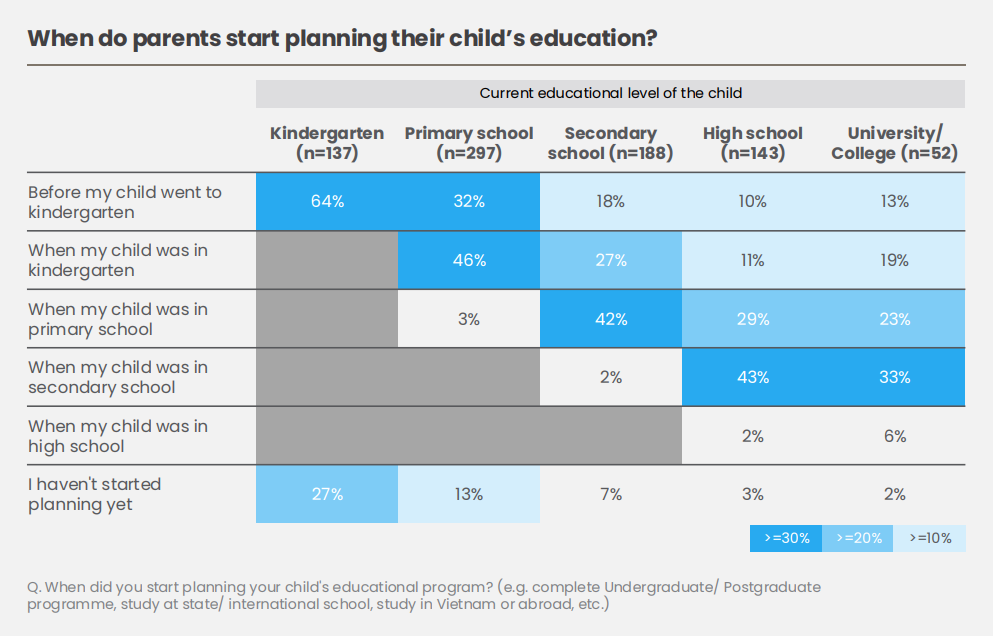
Their goal is to raise well-rounded individuals with strong ethics, critical thinking skills, and a lifelong love of learning, which indicates a mindset shift away from the academic achievement-driven culture.
94% of parents aspire for their child to attain a higher education institution degree. Parents’ interest for the child to study Master’s Degree grows progressively throughout the years and peaks among the parentswith children at the high school level. On the other hand, the interest in their children attaining a doctorate degree decreases as the child grows.
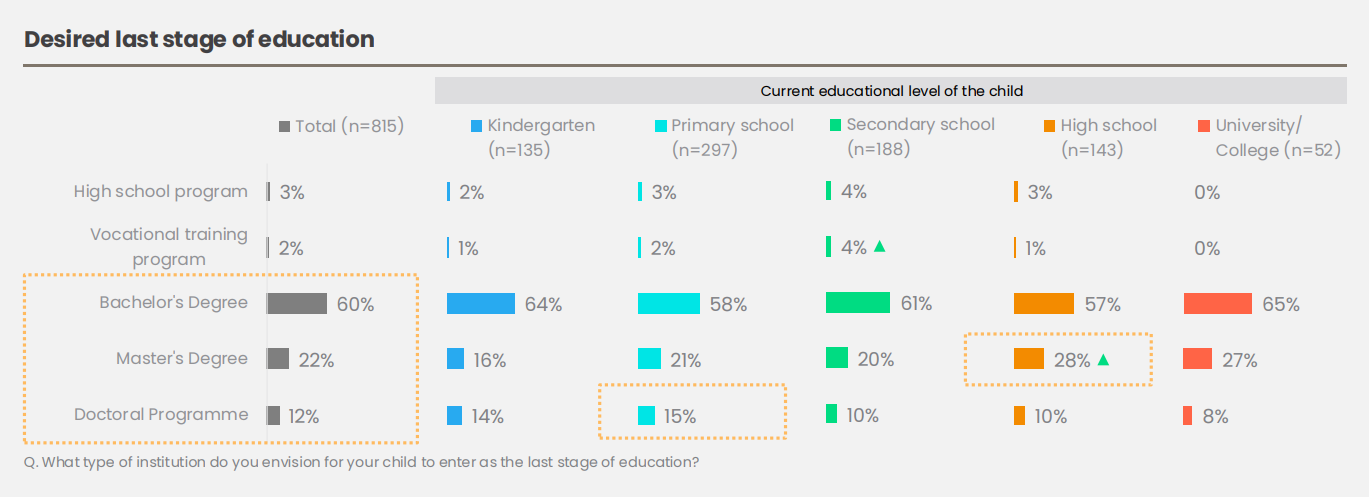
For the Bachelor’s degree, parents expect their child to have better chances for job stability. For Master’s and Doctorate degrees, the expectation goes further into specialized knowledge and skillset development.
On average, Vietnamese parents consider 6 to 8 factors when choosing a school for their child. They prioritize a healthy learning environment for their children’s early education, while the academic factors, like teacher quality, gaining importance later on in the key stages of K12 education.
In search of a healthy learning condition for their child, more and more parents are enrolling their offspings into bilingual/ integrated/ international programmes across education stages.

These programmes are being considered by parents due to its ability to provide a nurturing environment, which in turn will allow the children’s English proficiency to flourish, along with the development of soft and communication skills. The parental expectation for the children to become global citizens is evident.
In the journey of planning the options for higher education, choosing the subject/degree is the first key stage in the decision-making process. Vietnamese students prefer Computer Science, IT and Engineering degrees the most, followed by the cohort of Business, Management and Finance degrees.
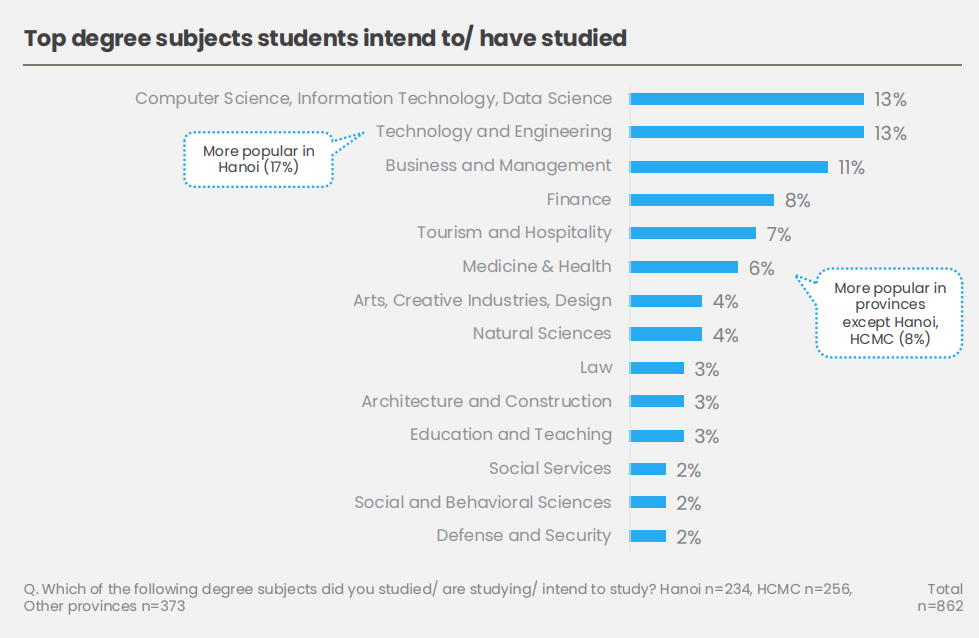
More than a third of students make their university/degree choice decision on their own. However, the parental influence remains strong in Vietnam, with 64% of students rely on the parents’ advisory with the decisionmaking process.
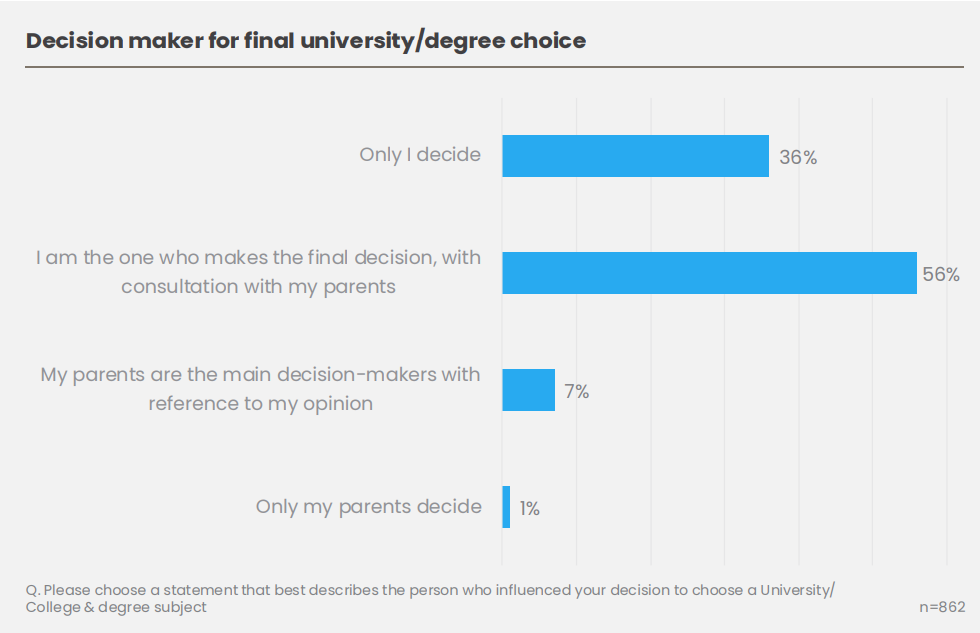
48% of parents value the traditional Vietnamese higher education provided by MOET.
While the other half (49% of parents) aim to provide their children with transnational and international education experiences, whether in Vietnam or abroad.
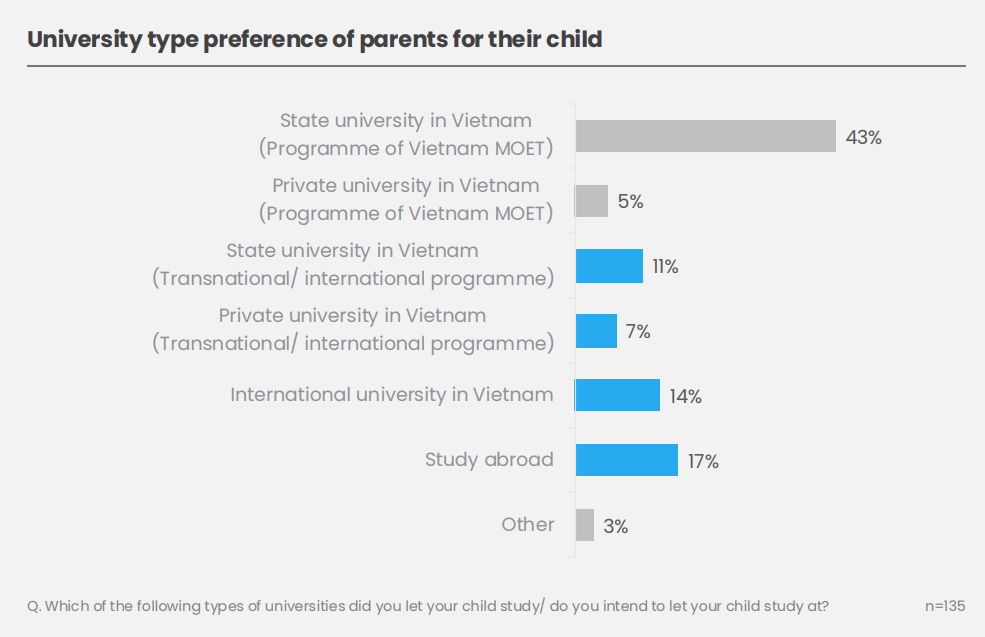
The desire for higher English language proficiency, global adaptability and course prestige drives the student interest. However, high costs and insecurity about English proficiency limitation still remain the key challenges of student recruitment.
In Vietnam, education is seen as a pathway to both personal development and career success. Parents heavily influence their children's educational choices, prioritizing programs that ensure job security, financial stability, and professional expertise. International and bilingual programs are sought after to equip students with English proficiency, soft skills, and global adaptability, aligning with aspirations for their children to become global citizens. Degrees in Computer Science, IT, Engineering, Business, and Finance are in high demand. While nearly half of parents aim to provide their children with international or transnational education, financial constraints remain a significant barrier.
Source: BritCham x Decision Lab